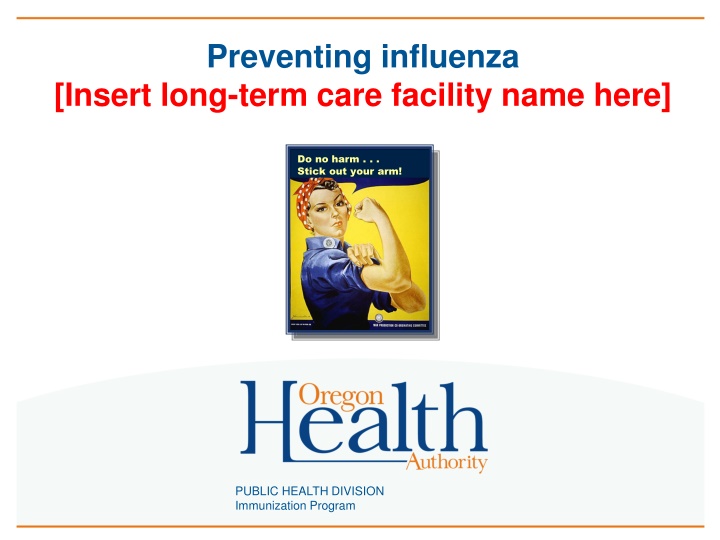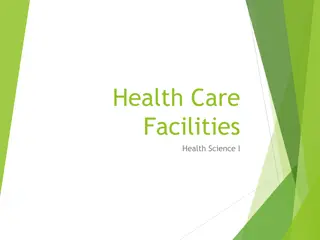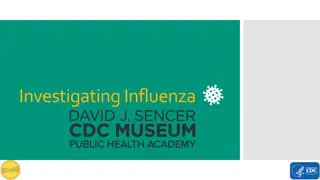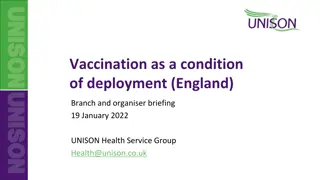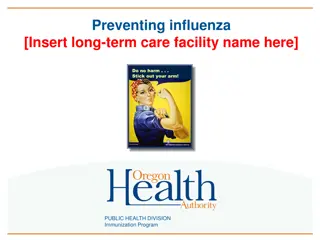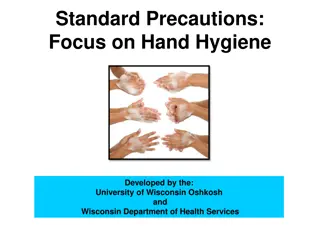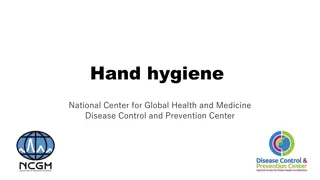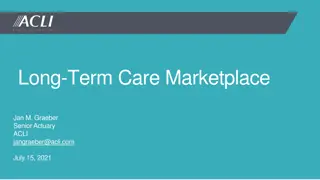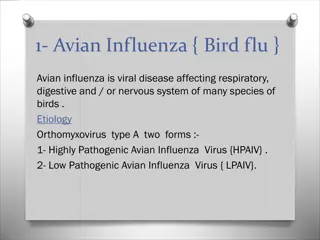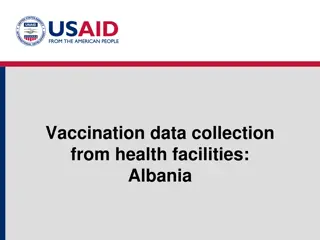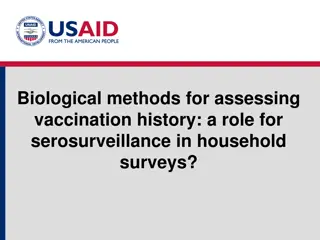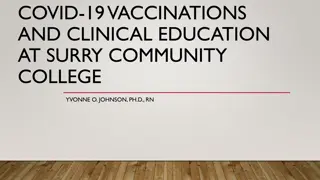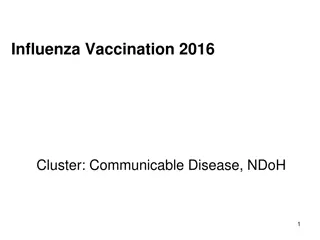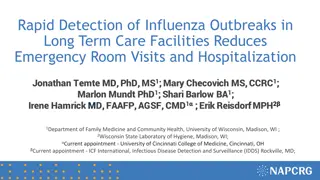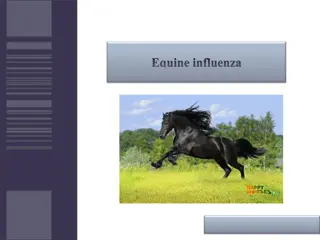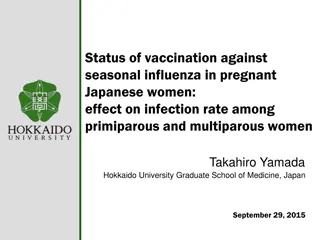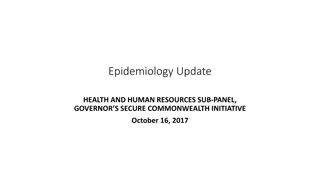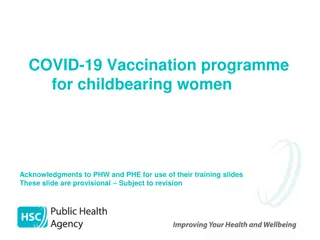Preventing Influenza in Long-Term Care Facilities: Importance of Vaccination and Hygiene Practices
Influenza, commonly known as the flu, is a contagious respiratory illness that can have severe consequences, especially for vulnerable populations like those in long-term care facilities. This post emphasizes the importance of flu vaccination for residents, staff, and visitors, along with good hygiene practices to prevent the spread of the virus. It highlights key facts about influenza, symptoms to watch out for, who should get vaccinated, signs of flu, prevention tips, and debunks common misconceptions about flu shots. The message is clear: vaccination and hygiene are critical in protecting against influenza outbreaks in long-term care settings.
Download Presentation

Please find below an Image/Link to download the presentation.
The content on the website is provided AS IS for your information and personal use only. It may not be sold, licensed, or shared on other websites without obtaining consent from the author.If you encounter any issues during the download, it is possible that the publisher has removed the file from their server.
You are allowed to download the files provided on this website for personal or commercial use, subject to the condition that they are used lawfully. All files are the property of their respective owners.
The content on the website is provided AS IS for your information and personal use only. It may not be sold, licensed, or shared on other websites without obtaining consent from the author.
E N D
Presentation Transcript
Preventing influenza [Insert long-term care facility name here] Do no harm . . . Stick out your arm! PUBLIC HEALTH DIVISION Immunization Program
Have you heard? Influenza is referred to as the flu Contagious respiratory illness Symptoms vary 2
Have you heard? 2014-2015 Flu Season: 40,000,000 influenza illness 19,000,000 flu-associated medical visits 970,000 flu-associated hospitalizations 65 years and older? 8.3 million illnesses 4.7 million medical visits 758,000 hospitalizations 90% of deaths http://www.cdc.gov/flu/about/disease/2014-15.htm 3
Have you heard? You are one of the most important defenses against the flu entering [Insert Long-term care facility name here] 4
Have you heard? Who should get the shot Long-term care residents All long-term care staff Family/visitors of residents Persons aged 2 49 yrs. with high risk conditions All persons > 50 years Pregnant women Children 6 months 18 yrs Household contacts & caregivers of children < 6 months 5
Signs and symptoms of flu Body aches Chills Dry cough Fever Headache Sore throat Stuffy nose Silent carriers 6
Flu prevention Get vaccinated Your best protection Practice good hygiene Wash hands often Cover your mouth / nose when you cough / sneeze Put used tissues in waste basket Clean your hands after you cough / sneeze Avoid touching your face, eyes, nose or mouth If you are diagnosed with the flu Stay home Avoid close contact with others, or wear a mask Get rest and drink plenty of fluids 7
Misconceptions Getting the shot will cause the flu Reasons why many do not get immunized I ve never gotten the flu, so I don t need the vaccine I got the shot last year I hate needles 8
Did you know? A study published in the Journal of the American Medical Association finds that getting the influenza vaccine lowers a person s odds of a having heart attack, stroke, heart failure, or other major cardiac event including death by about a third over the following year. can help protect against premature labor and delivery http://www.health.harvard.edu/blog/flu-shot-linked-to-lower-heart-attack-stroke-risk-201310236795 http://www.mayoclinic.org/diseases-conditions/heart-disease/in-depth/flu-shots/art-20044238 http://www.cdc.gov/flu/pdf/partners/flu-pregnancy-infographic.pdf
Have you heard? We will be offering the flu shot on [Insert date and time(s) here] 10
What I can do to prevent the flu? Stick out your arm! Do no harm!
Did you know? Flu shots will be offered at [Insert date and time(s) here] And are also available at Public Health Departments Pharmacies Most medical offices This project is supported by the Health Resources and Services Administration (HRSA) of the U.S. Department of Health and Human Services (HHS) under grant number and title H54RH00049, Rural Hospital Flexibility Program for grant amount $5,000. This information or content and conclusions are those of the author and should not be construed as the official position or policy of, nor should any endorsements be inferred by HRSA, HHS or the U.S. Government.
